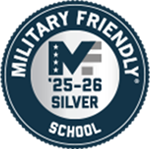Program Learning Outcomes for Adolescence Social Studies, MAT
Candidates who successfully complete all required components of the Adolescence Social Studies
program at SUNY New Paltz will:
• Content Knowledge: Enhance content area mastery by completing 9-12 hours of graduate-level
coursework in social studies.
• Planning: Be able to plan lessons in social studies that are standards-based, clear and
organized, rely upon a variety of appropriate instructional strategies and appropriate
technologies, and differentiate instruction, providing opportunities to promote appreciation of
diversity, tolerance, and inclusion in safe, democratic, and equitable learning environments.
• Assessment and P-12 Learning: Be able to choose, design, and implement authentic and
appropriate formative and summative assessments to evaluate student learning, consider
assessment data when making instructional decisions, and identify effective or problematic
teaching moments as they are occurring in order to facilitate student growth in specified
content, cognitive skills, and/or social skills.
• Pedagogical Practice: Demonstrate the ability to maximize student learning by incorporating
content and pedagogical content knowledge, appropriate and effective technology, and a variety of developmentally and contextually appropriate evidence-based instructional strategies to make learning meaningful for students while teaching.
• Dispositions: Exhibit the knowledge, skills, and dispositions necessary to practice an ethically
informed and self-reflective philosophy, participate effectively in institutional change, and
develop respectful relationships with students, families, communities and colleagues.
• Critical Thinking: Identify, analyze, and evaluate different methods of planning, assessing, and
teaching in order to develop well-reasoned arguments that support pedagogical decisions.
• Information Management: Use technology and basic research techniques in order to locate,
evaluate, and synthesize best-practices concepts in content knowledge, planning, assessment,
and pedagogical practice.
Program Learning Outcomes for Adolescence Social Studies, MSED
Candidates who successfully complete all required components of the Adolescence Social Studies
program at SUNY New Paltz will:
• Content Knowledge: Enhance content area mastery by completing 12-15 hours of masters-level
coursework in social studies.
• Critical Inquiry and Intellectual Development: Inquire and reflect critically on sociological,
historical, and other aspects of educational practice and policy, engage in data-informed
decision-making processes, demonstrate the ability to employ evidence-based practices, and
continually develop disciplinary and pedagogical knowledge and skills oriented towards high-
quality teaching and learning standards.
• Professional Skills and Disposition: Develop respectful relationships with students, families,
communities and colleagues, practice an ethically informed philosophy, and participate
effectively in institutional change.
• Culturally Responsive Practice and Social Justice: Understand and apply practices that promote
respect, inclusion and equity in teaching, learning, and student development based on social
identity markers including, but not limited to, race, gender, class, sexual orientation, disability,
language, religion, culture, national origin, epistemology, and family life.
• Democratic Citizenship and Student Advocacy: Respect education as a human right and a
foundation to active inclusion and participation in public life, and aspire to be agents of change
in response to persistent barriers to equal educational opportunity.
• Technology: Demonstrate knowledge and skill with using appropriate educational technology to
enhance learning in adolescence education.
• Critical Thinking: Identify, analyze, and evaluate different methods of planning, assessing, and
teaching in order to develop well-reasoned arguments that support pedagogical decisions.
• Information Management: Use technology and basic research techniques in order to locate,
evaluate, and synthesize best-practices concepts in content knowledge, planning, assessment,
and pedagogical practice.







